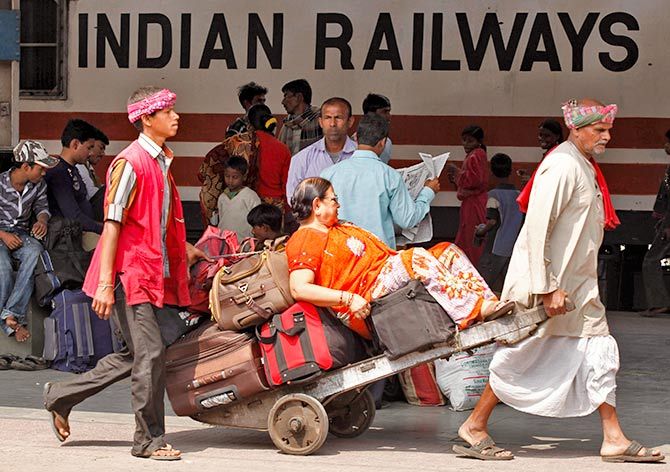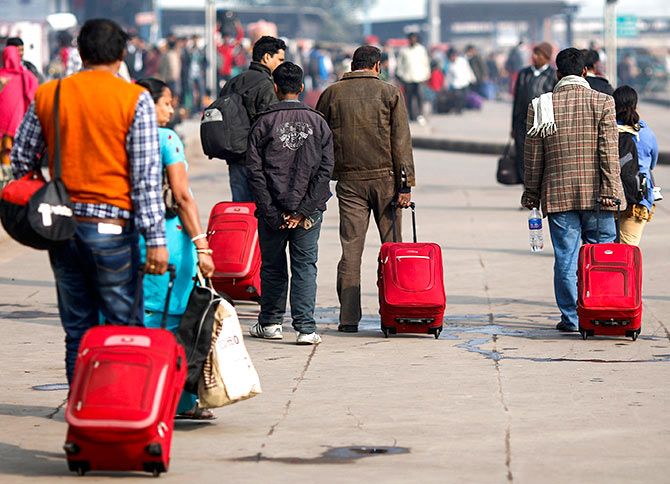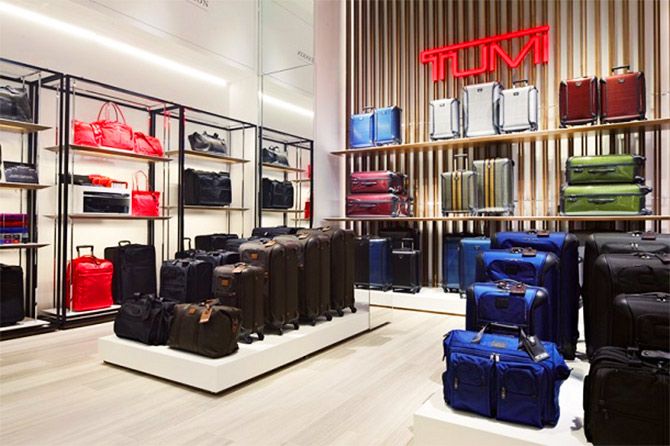Samsonite packs a punch with new retail strategy. As the Indian market grows, the luggage brand is getting future-ready with online, offline channels.

Indians are travelling more often as disposable incomes increase, opening up market prospects for luggage and bag makers like Samsonite.
As the American major seeks growth outside its home market, India, China and Indonesia are the kind of places where it is tracking consumer habits closely in a bid to grow market share.
A key reason for this is the shift that players like Samsonite see from unbranded to branded luggage in markets such as India.
Pegged at Rs 6,000 crores in retail value, the domestic branded luggage market is growing at the rate of 9 to 12 per cent per annum, according to industry estimates. The unbranded luggage market, though larger in size, at Rs 15,000 crores, is growing at a slower rate, just about 3 to4 per cent per annum, experts tracking the market said.
Another key trend for the Indian market that companies are tracking closely is the rate of replacement of bags, which has dropped to about two to three years now from around four to five years earlier. This presents an interesting proposition for players such as Samsonite keen to ramp up their presence by tapping into these emerging trends.

While India is Samsonite’s fifth-largest market globally and fourth-largest in Asia, profit-wise, says Subrata Dutta, president, Asia-Pacific, Samsonite Asia, it ranks third in the pecking order of markets (after China and Korea) within the region.
At nearly Rs 1,000 crores in turnover currently, Samsonite hopes to double topline in India in the next 3 to 4 years on the back of an aggressive online and offline push. This includes an India launch of its recently acquired online luggage portal ebags.com by next year and an aggressive rollout of stores across its key brands in the country. This way Samsonite hopes to be relevant to all consumers -- young, old, wealthy and middle-class.

Along with American Tourister targeted at mid-market consumers and flagship Samsonite sitting at the upper end of the market, the company has brand Kamiliant in the entry-level bag segment in India, launched last year.
Kamiliant’s launch is also in line with Samsonite’s global strategy of growing its presence in emerging markets, something that the firm’s global CEO, the India-born Ramesh Tainwala has been pushing aggressively since taking over as CEO in 2014.
In the last decade, Samsonite has steadily added brands both at the upper and lower ends of its portfolio, as it aims to achieve a more well-rounded appeal for the brand among its consumers.

Adding shine to its India portfolio are a clutch of premium luggage brands including Lipault (French designer brand), Tumi (luxury brand managed by partner Genesis Luxury), High Sierra (adventure lifestyle) and Hartmann (luxury brand), all acquired by the company in the last few years. Dutta doesn’t rule out more of them making it to the India list as the American firm seeks to consolidate its presence in the country.
With Kamiliant, in particular, Dutta explains, Samsonite has attempted to close key gaps in its mass-market portfolio as it seeks to grow its business in the country. “India is about identifying needs rather than wants. In a growing market it becomes important to address consumer needs across the price pyramid. Kamiliant was an answer to that,” he says.

Starting at Rs 1,300 and going up to Rs 4,500, Samsonite has made inroads into 70 per cent of the Rs 6,000-crore organised luggage market with Kamiliant. While American Tourister, the mid-market brand priced between Rs 2,800 and Rs 7,000, is the cash cow for the India operations giving it 70 per cent of its revenue, with products such as Kamiliant, Samsonite hopes to change that equation in the coming years.
Flagship Samsonite luggage, on the other hand, is priced between Rs 8,500 to Rs 35,000 and targets the brand-conscious consumer.
While premium brands such as Samsonite, Lipault and Tumi have exclusive stores, the strategy with American Tourister and Kamiliant is to improve reach via company-appointed distributors. “There are 45 such distributors across the country who have helped us take American Tourister and Kamiliant to almost 500 to 700 towns in India,” Dutta says.
The company hopes to push this number up riding on price, novelty and multiple points of presence. “An online presence will complement our offline presence and help us get more consumers to buy our products,” Dutta says.

While the in-house portal (ebags.com) will come at the appointed time, the company is already aggressively tapping online marketplaces such as Amazon to push its online presence as consumers increasingly seek convenience when purchasing bags. Key brands in its portfolio (such as American Tourister, Samsonite and Lipault) are available online currently, with sales from that channel in mid-single digits. Samsonite hopes to take that up to double-digits in the next few years as it presses the online lever aggressively.
Pull is expected to come from brand ambassadors such as Virat Kohli, appointed this year as the face of American Tourister. Samsonite uses Kohli not just in India, but also in a few other markets across the region where cricket and Kohli wield popular appeal.










